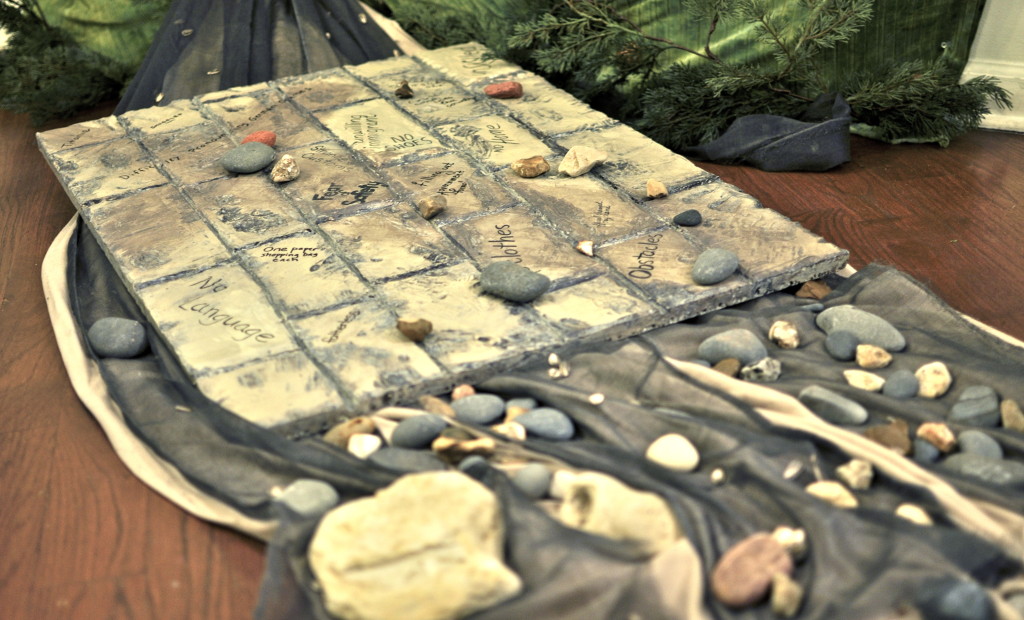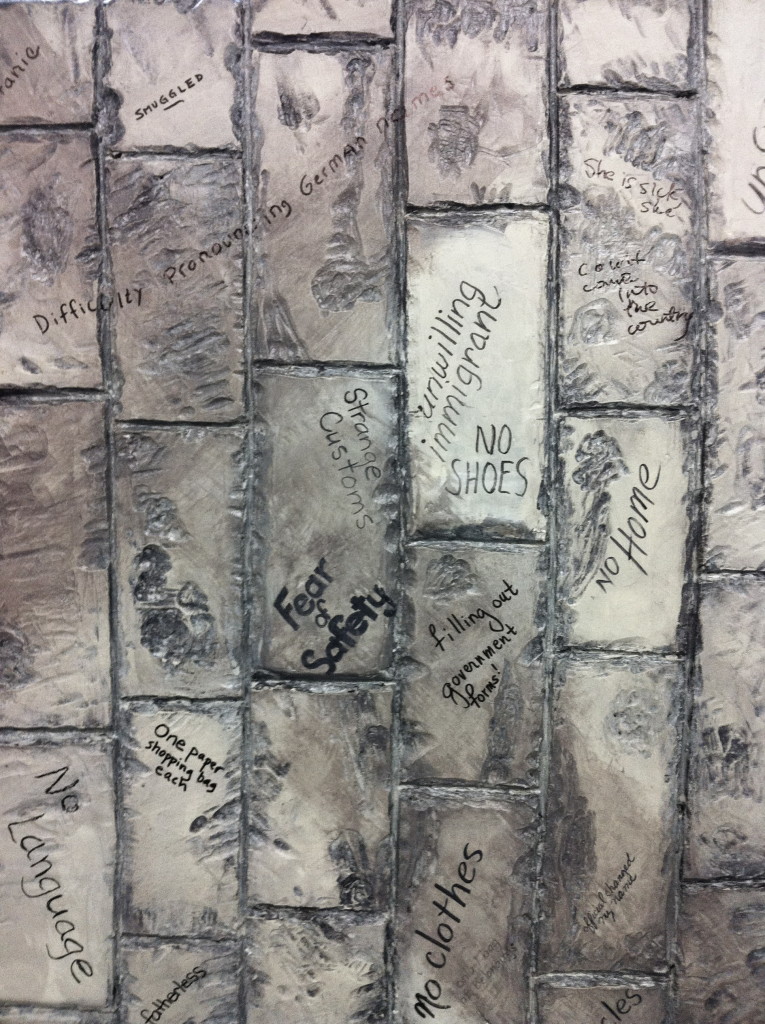Obstacles
Church members shared various stories of im/migration from England, Germany, Slovakia, Vietnam and Iraq. Earliest experiences date back to the 1600s, 1700s and 1900s.
In the late 1970s, one church member worked with a “boat family” to resettle in Midland, Michigan, but eventually San Antonio, Texas. More recently, several members helped an Iraqi family to resettle in suburban Detroit.
What are those “obstacles” that our families—or the families which we have supported—faced in immigration to the United States?
That Jesus fell three times is the tradition of the church. No specific scripture refers to Jesus falling, however, Simon needing to help him carry the cross suggests that he fell.
Excerpts from stories of im/migration collected at the church
~~~
In the late seventies Memorial Presbyterian Church welcomed the Le Family as immigrants from Vietnam to Midland, Michigan. There were five in the family, father, mother, a teen-age son and another boy and girl (we never were able to verify their actual ages and they did not know how old they were.)
They arrived one cold January day and got off the plane with only the clothes on their back and one paper shopping bag each.
The family understood no English so we had to begin very simply—just meeting their basic needs. Immediately a Vietnamese couple that worked at Dow Corning began working with us for language interpretation.
Our interpreters and others started searching out what the father could do for work. Since he was “unskilled” gainful employment never happened for him in Midland and after many months he wanted to relocate to San Antonio where friends he knew assured him he could find work.
Working with this family who came to us with virtually no possessions, no home, no skills, no language showed us how vulnerable people can be—and yet how, with help, they can survive and thrive.
~~~
John Barrackman from Germany, whose family had settled in County Limerick, Ireland, in 1709, emigrated to the U. S. in the 1760s and settled in Vermont. His name was spelled variously as Bergmann, Barkman, and Barrickman as well as Barrackman (meaning man from the hill or mountain.)
Due to difficulty of the Vermonters in pronouncing the German name, John’s children changed their name to “Hillman.” [see A Few More Left: The Story of Isaac Hillman, by Henry Z. Jones, Jr.]
~~~
I was always told that my mother was “smuggled” into the country. The story was this:
Following my grandfather Jacob, my grandmother Kademagrit arrived with four children via Germany and then Glasgow to Ellis Island. When she got there on March 2, 1902, Anna was in her arms because one day shy of her second birthday, she still didn’t walk.
Going through immigration Anna was noticed, and they said “She is sick; she can’t come into the country.” Kademagrit said “What do you expect me to do—I have no money for passage back, I can’t send her back by herself, and what do I do with the other three children as well?”
Supposedly a kindly white haired older immigration official who spoke German took pity on her and said “Not to worry, just give her to me, and go on through.”
Well, Kademagrit did worry a lot, but got through all the rest of the immigration formalities. As they were about to leave Ellis Island on the ferry for Staten Island, the white haired man appeared around a corner of the building and tossed Anna to Kademagrit, who hurried up the gangplank. Everyone made it safely back to the family reunion in Lincoln, Nebraska.
We think that Anna had rheumatic fever or polio or something like that in Russia. They took the cane seat out of a kitchen chair, and she remembers using that as a walker until she could walk by herself.
~~~
Artwork created by Memorial Presbyterian Church
Terry Christens
and Dave Morrison
in collaboration with
Diana Brookens
Cathy Chang
Patrick Kirts
Wendy Lewis
Guy Lynch
Members and staff at Bertha E. R. Strosacker Memorial Presbyterian Church, Midland, Michigan

